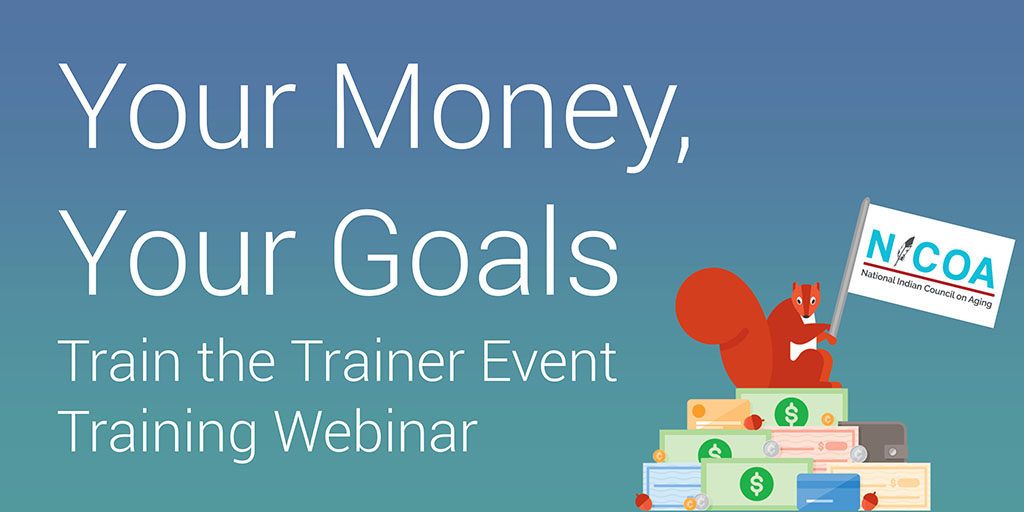This post originally appeared on the NICOA blog.

Finances can be overwhelming for many people, and a variety of factors can increase financial challenges, especially for Elders.
Economic Barriers
Economic barriers are a significant challenge for many who already feel that finances are overwhelming, and these barriers in turn can create additional challenges, often related to health.
Low-income households, especially people that live and work in areas where there is a lack of employment or educational resources (which disproportionately include racial and ethnic minorities), often experience a lack of access to healthy lifestyle options. Low-income households also have an increase in morbidity and mortality rates compared to higher income households. Poverty alone serves to increases barriers to services and makes everyday life harder for Elders.
Economic barriers also prevent many people from managing daily tasks and challenges, and negatively affect their ability to plan for the future, including retirement. Behavioral economic research shows that low-income households are often so overwhelmed by their money worries and challenges that their “mental bandwidth”, or the capacity of the brain’s ability to perform basic functions, becomes dramatically reduced. Because of this many people become unable to see beyond their immediate crisis causing other parts of their life to fall through the cracks, like paying bills or other important tasks. Furthermore, this constant worry creates stress, which adds to the overwhelmed feeling of financial insecurity and vulnerability.
AI/AN Elders
Beyond economic barriers, being part of a minority group can also create challenges. For example, financial issues are of significance to American Indians and Alaska Natives (AI/AN) Elders.
In 2013, AI/ANs had the highest poverty rate of any group, 29.2% as opposed to the nation as a whole, at 15.9%. Projected poverty rates for AI/AN elders in 2030 are 10.9%, more than twice the rest of the total population, which is projected to be 4.7%. Furthermore, a research study stated that “The elderly AI/AN group consistently fares worse than the total population in the health and economic characteristics examined,” which included “health status, work limitation status, disability status, lifetime earnings, per capita Social Security benefits, per capita income, per capita wealth, and poverty.”
Financial Abuse
On top these challenges, Elder financial abuse and exploitation is a growing problem, particularly for racial, ethnic minority, and LGBT Elders. Worries about economic stability increase significantly when an Elder is a victim of financial exploitation.
Financial exploitation is defined as the illegal taking, misuse, or concealment of funds, property or assets of a senior for someone else’s benefit. “Senior financial abuse scams are a multi-billion dollar ‘industry’…[and] studies estimate the annual financial loss nationwide to be around $2.9 billion…[but] these figures do not account for the tens of billions spent on indirect costs for medical care, social services, and legal costs, or for the pain and suffering of the victims.”
What NICOA is Doing
To attempt to address some of these challenges, NICOA will be delivering the Your Money, Your Goals toolkit and the companion guide Focus on Native Communities in a ‘train-the-trainer’ format, with the goal of developing an ongoing, sustainable training program. The training program gives organization’s front line staff and volunteers the resources they need to help people they serve set goals, choose financial products, and build skills in managing money, credit, and debt.
This program also includes information about the cultural and emotional influences on financial decision making within Indian country, and the important considerations in Native communities where traditional community values may seem to conflict with some approaches to financial management.
NICOA is hosting a FREE two part Your Money, Your Goals train-the-trainer webinar series on August 23rd and 30th from 2:00pm to 3:30pm (Central). To register and get more information on the webinar series, visit the event page at tinyurl.com/y9acdoz9
The opinions expressed in this article are those of the author and do not necessarily reflect those of the Diverse Elders Coalition.

